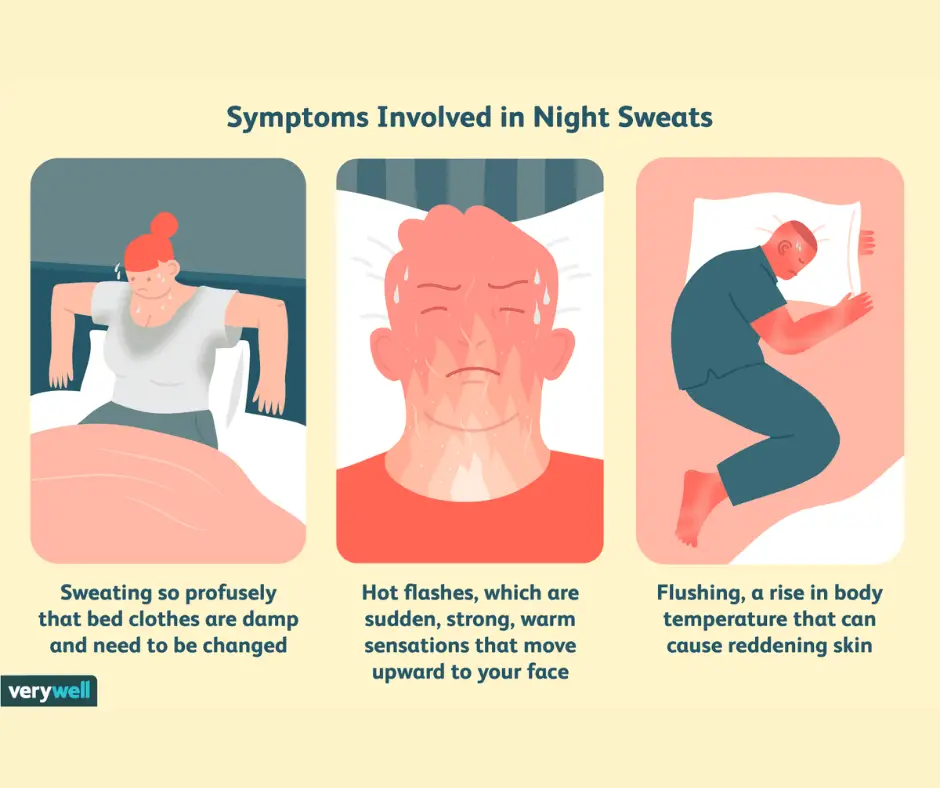If you’re navigating the menopause maze, you’ve likely asked yourself, Do Hot Flashes Burn Calories? Unfortunately, the answer is NO. While hot flashes involve increased metabolic activity, the calorie burn is minimal and unlikely to impact weight significantly.
In case you are wondering what Hot flashes are, those sudden surges of heat that plague many women during menopause can be downright miserable. But amidst the discomfort, a glimmer of hope sometimes arises: do hot flashes burn calories? Could these sweaty episodes be a secret weapon for weight management?
In this article, let’s resolve the mystery and explore whether hot flashes have calorie-burning magic.
Symptoms and Factors of Hot Flashes

The hot flushes represent one of the symptoms associated with menopause appearing in women above 40-45 years of age. Symptoms typically include sudden hot flashes, reddening of the face and neck, sweating, and unpleasant discomfort – mild or severe.
Hot flushes occur due to fluctuations in hormone levels, mainly in estrogens, that reduce significantly during menopause. The unbalanced estrogens cause hypothalamic disorder, leading to hot flashes. When this happens unexpectedly, there is an unprepared response by body systems. In particular, the blood vessels widen suddenly and release a lot of blood to the skin, causing flushing and profuse sweating.
The increased metabolic rate caused by hot flashes occurs when the body experiences more difficulties due to a higher workload. As studies suggest, increases are around 2%, equivalent to about 20-30 calories burned daily. It means just a few minutes of strolling, which cannot balance the scale on your side.
Calorie burning during hot flashes: Factors to Consider:
Every woman’s experience differs from the others, but the common physical symptoms that most of them experience when they do have a hot flash. Even the minimal calorie burn during hot flashes can vary depending on several factors:
Duration and frequency: Cumulative calorie burn will be just below in longer, more frequent hot flashes compared to shorter and more frequent hot flash periods.
Individual metabolism: People with higher metabolism may burn some extra calories during a hot flash compared to those with lower metabolism.
Body composition: Muscle tissue requires more energy to rest than stored fat. Therefore, people with larger muscles may consume more calories every time they have a hot flush.
We are sorry to hear that some of you have to deal with them. If you are lucky enough not to have to, then that’s awesome.
Remember, hot flashes are a normal part of menopause, and you’re not alone in experiencing them. Embrace healthy lifestyle choices for overall well-being, and don’t rely on hot flashes for a weight-loss miracle. If you have persistent weight concerns, consult your doctor for personalized guidance.
What You Need to Know About Weight Loss & Hot Flashes
We’re here to explain how calories work in the body. Your body uses calories to fuel the machine (you!) Calories are consumed through food and burned as fuel throughout the day. When did you last wonder how many calories you should consume daily? You’re on a personalized journey based on age, activity level, and metabolism. You can’t treat everyone the same way.
It remains unclear if hot flashes directly affect calorie burning, but a few studies have investigated related aspects. According to a study published in the Journal of Clinical Endocrinology & Metabolism, women with frequent hot flashes have a lower body mass index (BMI) than women without it.
After some brainstorming done by researchers, it is said that hot flashes could affect BMI by being thermogenic. However, the study did not provide conclusive evidence on direct caloric expenditure when experiencing hot flashes. More research is needed to establish a clear link and quantify the extent to which hot flashes may contribute to weight loss.
How to Manage Hot Flashes
While hot flashes themselves don’t contribute significantly to weight loss, their impact on weight management can be more subtle:
Keep Yourself Hydrated
While menopause is undoubtedly challenging, there are practical ways to deal with your pesky hot flashes, with hydration taking center stage. When your body’s water balance is out of whack, you’ll experience hot flashes. So, grab that water bottle and aim for at least eight glasses daily to keep things cool. If you’re dried up, opt for ice-cold water—a game-changer for cooling down.
Your diet is another key player. Consider adjusting your menu if certain foods, like caffeine, trigger hot flashes. Research even suggests that shedding excess weight can ease the intensity of menopausal symptoms, making dietary adjustments a worthwhile venture.
Supplements can also come to your rescue. Many women swear by green tea supplements, loaded with antioxidants that do wonders for hormone regulation and, consequently, hot flashes. Feel free to experiment until you find what works best for you. And if all else fails, a chat with your doctor might be the next logical step. Remember, you’ve got options—because managing hot flashes is all about finding your personalized cool-down strategy!
NOTE: Some women report feeling hungrier after hot flashes, potentially due to hormonal fluctuations or the body seeking to replenish lost fluids. This can lead to overeating and negate any minimal calorie burn from the hot flash itself.
Metabolic Changes During Menopause
When managing weight during menopause, exercise is a powerful ally. Exercise not only burns calories, but it also reduces the adverse effects of hormones on body composition. Training, in particular, becomes increasingly important as it maintains and builds lean muscle mass, counteracting the natural decline associated with aging and menopause.
Engaging in aerobic exercises, such as brisk walking, swimming, or cycling, contributes to overall calorie expenditure and supports cardiovascular health. Significantly, exercise has been shown to reduce some menopausal symptoms, including hot flashes. By incorporating a well-rounded fitness routine, women can address the immediate discomfort of hot flashes and the broader challenge of weight management.
NOTE: Managing stress techniques like yoga, meditation, or deep breathing can help regulate cortisol levels and combat stress-induced cravings.
Nutrition and Hormonal Balance
As well as exercise, nutrition plays a significant role in managing weight and hormone levels during menopause. A diet high in whole foods, such as fruits, vegetables, whole grains, and lean proteins, provides essential nutrients supporting overall health. Phytoestrogen-rich foods, for example, may ease menopausal symptoms, as well.
Keeping hydrated is essential, especially with the increased perspiration associated with hot flashes. Dehydration can exacerbate the discomfort of hot flashes and contribute to fatigue, making regular exercise more challenging.
Focus on healthy eating Prioritize nutrient-dense foods, fruits, vegetables, and whole grains to keep you feeling full and energized.
Lastly, Some Thoughts
In mankind’s perplexing world of menopause, this secret connection between instant flushes and calorie loss has become a topic of inquiry. Although studies show a slight increase in metabolism from hot flashes, this is unlikely to affect weight. Menopause-related general metabolic changes like hormones or compositional issues assume a more significant influence on weight control.
However, staying hydrated, having a good diet, exercising regularly, and experimenting with supplements can provide additional support while keeping fit on a larger scale. Therefore, although hot flashes do not represent the much-hoped calorie-burning solution, adopting an integrated tactic will better assist women in surmounting perimenopausal hurdles.
Keep in mind that you are not on your own. A doctor may have specific advice regarding issues and difficulties you face.
You may also like to read: What are Calories? Learn more in Detail
FAQ
Q.1: Do hot flashes increase your metabolism?
A.1: Increases in core body temperature, measured with an ingested radiotelemetry capsule, preceded 76% of the flashes. The increased metabolic rate began after increased core temperature.
Q.2: Are there any benefits to hot flashes?
A.2: What may be happening, she says, is that women who experience flushing during menopause could have blood vessels that are responding appropriately to the change in hormone levels occurring at that time, helping them to ward off the hardening of the arteries and plaque-building associated with heart disease.
Q.3: Can losing weight help with hot flashes?
A.3: If you’re a woman who is overweight or obese, you can substantially improve your hot flashes by losing weight through diet and exercise,” says Alison Huang, M.D., the lead author of the study and a professor of internal medicine at the University of California, San Francisco.
Q.4: Can hot flashes cause weight gain?
A.4: Menopausal symptoms (such as hot flashes, poor sleep, or low mood) can make it harder to exercise and eat healthy food, which may contribute to weight gain.





4 Comments on “Do Hot Flashes Burn Calories? Myths and the Truth”